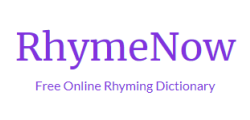Free verse is one of the simplest, and yet most difficult, type of poetry to write. While it doesn’t constrict the poet with rules about form, it requires him or her to work hard at creating a piece that is beautiful and meaningful without any specific guidelines about rhyme and meter. If you’d like to try your hand at free verse, there are a few tips (not rules) that will help as you develop your own style.
Choosing Words Carefully
Carefully chosen words can help you create a poem that sounds like the situation, emotion, or object you are trying to portray. For instance, short words with sharp consonants cause the reader to stop-and- go in a choppy cadence: Cut, bash, stop, kick, lick, bite, punch, jump, stick, kiss. They almost sound like what they mean. Use these types of short words when you want to show excitement, fear, anger, new love, or anything that might make your heart beat quickly. Longer words with soft sounds cause the reader to slow down. Use them when you want to show pause, tension, laziness, rest.
Here is an example:
Thrill Ride
Up. Up.
Click, click.
Wind blows
sharp in my ears.
My heart jumps. Skips.
It’s up. It’s up higher.It’s up, up the highest.
Hands grasp at the clouds.Then a forever pause. Still. Waiting.
Finally. Whoosh!
Steep drop
down,
down,
down.
Look how the short words move quickly as you read them. Then in the middle, the longer words at the top of the coaster, the pause before the drop, actually force your reading to slow and “forever pause.” The repetition of the word “up” creates a jolting feeling. This is not the entire poem, as it still needs a punchy ending. How would you finish this poem?
Using Alliteration
Alliteration is a literary device where the first sound in a series of words is the same, like “She shares shining shells.” You can use alliteration in free verse to create a particular mood, feeling, or sound to the poem, especially when combined with careful word choice. For example, the word “licking” forces your tongue to the front of your mouth when you say it, like a lick! Let’s combine this careful word choice with alliteration in a free verse poem about a hard candy on a stick!
Summer Lollipop
Licking a lolly slowly,
sunlight lapping at the lazy lake.Lovely evening,
lovely lolly,
lazy life.
You can almost feel yourself licking the lollipop slowly by the water with the sun setting on tiny ripples. Even though there is no set rhyme pattern or structure, you can almost feel a cadence in the words.
Using Personification
Sometimes giving an inanimate object human characteristics can breath new life into it. (See, I just did it!) Have you ever heard someone say that the sun was peeking out from somewhere, or that the clouds were lazy, or the water licked the shore? That’s personification. Let’s try it here:
Night crept in,
slow and smooth.It smothered the city
in darkness.Lights in windows
of tall buildings blinked,
One. Two. Again.And opened
their bright eyes.
The night takes on the persona of a thief creeping through the darkness, and the lights blink their eyes. There are two different personifications working in this poem, bringing it to life.
Now that you have some tools, use them to create your own free verse. Once you write a few poems, you will begin to develop your very own unique style. Before you know it, you’ll be writing free verse just like Walt Whitman!
- Enhancing ESL Fluency Through Children’s Poetry - July 24, 2024
- Sensory Poetry Lesson Plan: Bringing Poems to Life Through the Five Senses - July 17, 2024
- The Power of Rhythm: How Poetic Meter Enhances Memory and Recall - July 10, 2024





